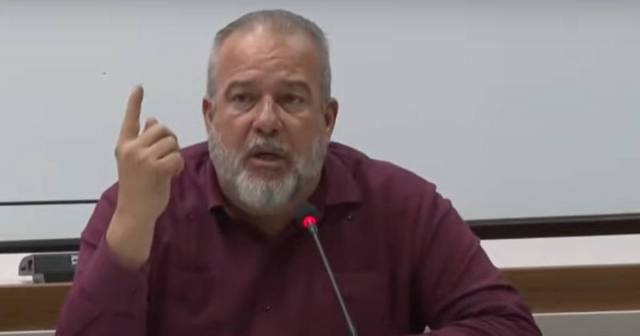The Minister of Finance and Prices in Cuba, Vladimir Regueiro Ale, warned owners of micro, small, and medium enterprises (MSMEs) that it is a "serious crime" to hide merchandise and not sell it to the population.
The official appeared on Cuban television to explain the first control measures that the regime has agreed upon following the recent implementation of Resolution 225, which imposes price caps on six essential products in the country.
Regueiro pointed out that concealing merchandise and obstructing commerce can be considered serious crimes or infractions.
"We are warning and, where we have identified these cases, we have summoned municipal governments and the economic actors who are involved," he stated. Owners of micro, small, and medium enterprises are summoned to government offices to receive guidance on the steps to take in each situation.
In many cases, we have had to arrange forced sales of merchandise. Until July 13, we had ordered 151 forced sales actions for products," he said. Additionally, he specified that the major violations are in the marketing of chicken and oil.
Despite the "indications" given by the State, the population continues to report the shortage of basic products such as chicken and powdered milk since the new measures were applied to private businesses.
Regueiro also referred to the regulation of profits, stating that a maximum limit of 30% has been established.
The government has taken a significant step to reduce costs by waiving tariff payments. This should motivate all of us to review how profits are distributed, as the ultimate beneficiary is the population," the official stated.
The Cuban Prime Minister, Manuel Marrero, during an extraordinary meeting of the Council of Ministers last week addressed the updating of legal provisions for micro, small, and medium enterprises, self-employed workers, and private sector companies in Cuba.
Marrero said that the government's new policies "are not a crusade against small and medium-sized enterprises". He ensures that they are necessary for the economy and were approved at the Communist Party Congress.
He pointed out that the initial regulations had legal gaps that led to distortions and emphasized that the private sector needs to understand its place in the economy, because "the Constitution of the Republic makes it clear that the main actor is the socialist state enterprise."
This weekend, the government ordered 11,891 inspections on the private sector and euphemistically called them "actions to confront violations of price caps".
The detection rate for violations was 41.7%, with 4,954 cases. 4,332 fines were imposed, totaling over 13 million pesos.
What do you think?
COMMENTFiled under:
